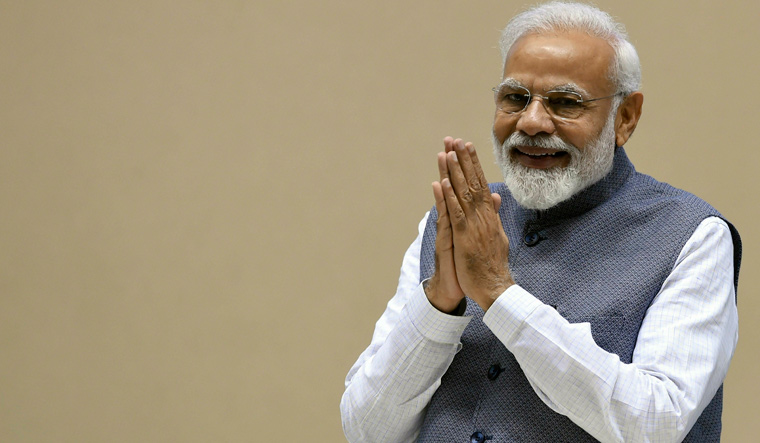Ingrained social distancing norms like people greeting each other with a Namaste' in India may have provided more protection against the coronavirus, which has caused unprecedented devastation in some countries while leaving others relatively untouched, according to a US media report.
The coronavirus has touched almost every country on earth, but its impact has seemed capricious. "Global metropolises like New York, Paris and London have been devastated, while teeming cities like Bangkok, Baghdad, New Delhi and Lagos have, so far, largely been spared," The New York Times said in a report 'The Covid-19 Riddle: Why Does the Virus Wallop Some Places and Spare Others?'.
"The question of why the virus has overwhelmed some places and left others relatively untouched is a puzzle that has spawned numerous theories and speculations but no definitive answers. That knowledge could have profound implications for how countries respond to the virus, for determining who is at risk and for knowing when it's safe to go out again, it said.
The report added that globally there are already hundreds of studies underway looking into how demographics, pre-existing conditions and genetics might affect the wide variation in impact.
The report cited interviews with more than two dozen infectious disease experts, health officials, epidemiologists and academics around the globe who said four main factors could help explain where the virus thrives and where it doesn't: demographics, culture, environment and the speed of government responses.
Cultural factors, like the social distancing that is built into certain societies, may give some countries more protection, epidemiologists said. In Thailand and India, where virus numbers are relatively low, people greet each other at a distance, with palms joined together as in prayer. In Japan and South Korea, people bow, and long before the coronavirus arrived, they tended to wear face masks when feeling unwell, the report added.
The report also noted that in much of the developing world, the custom of caring for the elderly at home leads to fewer nursing homes, which in the Western nations have seen tragic outbreaks and high number of fatalities among the elderly.
Director of the Harvard Global Health Research Institute Ashish Jha said that nations are really early in this disease. If this were a baseball game, it would be the second inning and there's no reason to think that by the ninth inning the rest of the world that looks now like it hasn't been affected won't become like other places.
Many countries that have escaped mass epidemics have relatively younger populations, the report said.
Young people are more likely to contract mild or asymptomatic cases that are less transmissible to others," said Robert Bollinger, a professor of infectious diseases at the Johns Hopkins School of Medicine.



